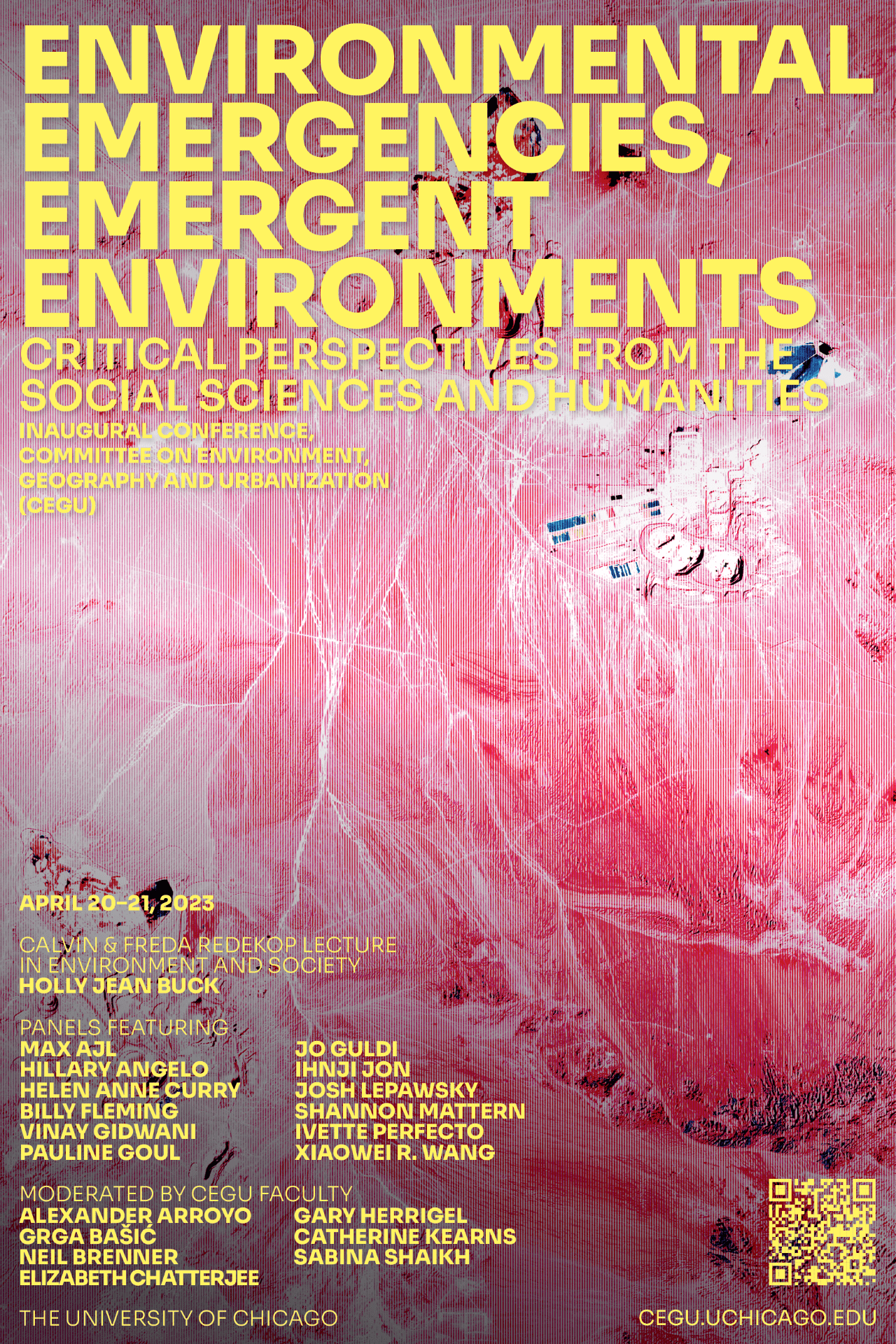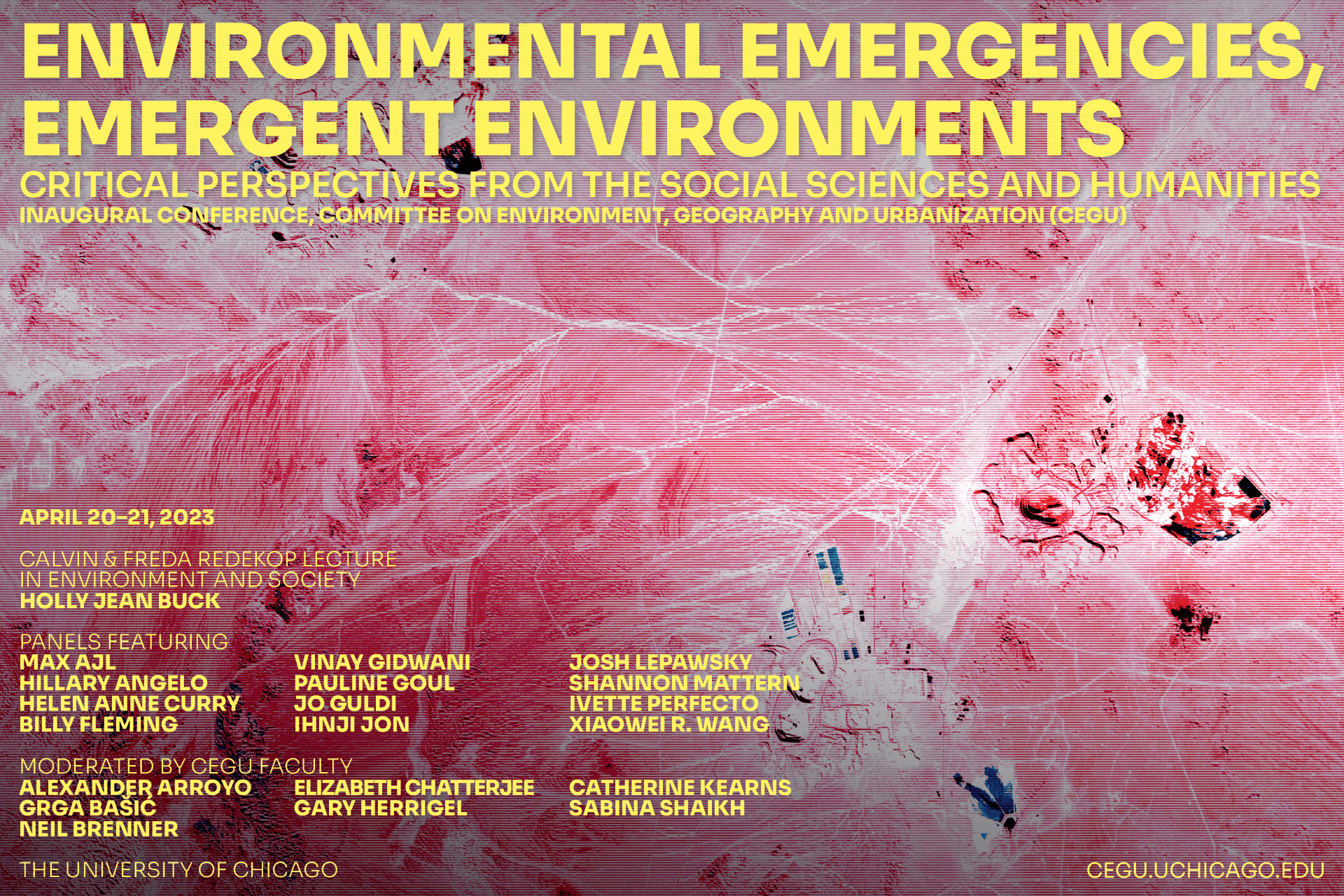Environmental Emergencies, Emergent Environments
Critical Perspectives from the Social Sciences and Humanities
Inaugural Conference, Committee on Environment, Geography and Urbanization (CEGU)
Division of Social Sciences, The University of Chicago
April 20–21, 2023
Environmental Emergencies,
Emergent Environments
Critical Perspectives from the Social Sciences and Humanities
Inaugural Conference, Committee on Environment, Geography and Urbanization (CEGU)
Division of Social Sciences, The University of Chicago
April 20–21, 2023
Reclaiming Waste
Moderated by Catherine Kearns, University of Chicago
Friday, April 21, 2023, 3:15–4:45pm
Room 122, Regenstein Library
In a world of planned obsolescence and profligate consumerism, why would waste need reclaiming? Waste is a realm of socio-environmental relations in which we are confronted with our limits, conceptually and practically. This panel explores new ways of framing the question of waste, from perspectives in geography, political economy, and literature.
The Waste-Value Dialectic
Vinay Gidwani, University of Minnesota
Vinay Gidwani (he/him) is Distinguished University Teaching Professor of Geography and Global Studies at University of Minnesota. His research interests include agroecological and urban transformations, labor geographies, informal economies, social reproduction, and waste. His most recent project (with Aakansha Jain, American University) was a yearlong study of the spatial history of Seelampur, one of India's largest e-waste hubs. He has recently completed an edited book on speculative urbanism and livelihood upheavals in Bengaluru, India (in the pipeline at University of Minnesota Press) and is finishing a public-facing book on the lifeworlds of informal sector migrant workers in Indian cities (with Priti Ramamurthy, UW-Seattle). He is the author of Capital, Interrupted: Agrarian Development and the Politics of Work in India (University of Minnesota Press, 2008). His recent articles have appeared in Commodity Frontiers, EPA: Economy and Space, Feminist Studies, Antipode, and Journal of Peasant Studies.
The End of Abundance: A Waste Lexicon
Pauline Goul, University of Chicago
Pauline Goul (she/her) recently joined the faculty at The University of Chicago in Romance Languages and Literatures. She has co-edited Early Modern Écologies (Amsterdam University Press, 2020) and published a number of articles on environmental criticism in the early modern period. She’s at work on her first book project, Ecologies of Waste: Sustainability, Literature and the New World in Renaissance France.
Waste, Warming, and the Risky Water Futures of Global Semiconductor Production
Josh Lepawsky, Memorial University of Newfoundland
Josh Lepawsky↗ (he/him; settler) is Professor of Geography at Memorial University of Newfoundland and Labrador. He researches the geographies of discards, of maintenance, and of repair. Questions that inform his research include where and how are contemporary discards made? Where do they travel and where do their effects accumulate? Who gets what discards, where, how, and under what conditions? He is also interested in how maintenance and repair, broadly conceived, might offer both literal and figurative lessons for working out how to live well together in permanently polluted and always breaking worlds.

